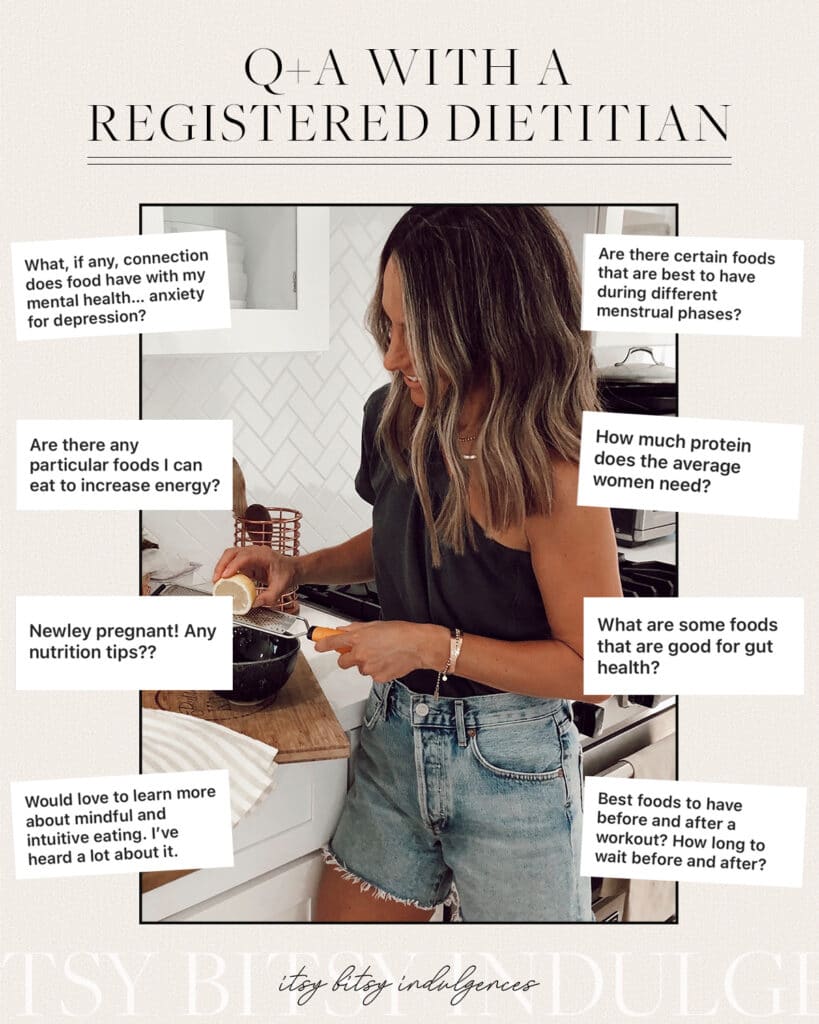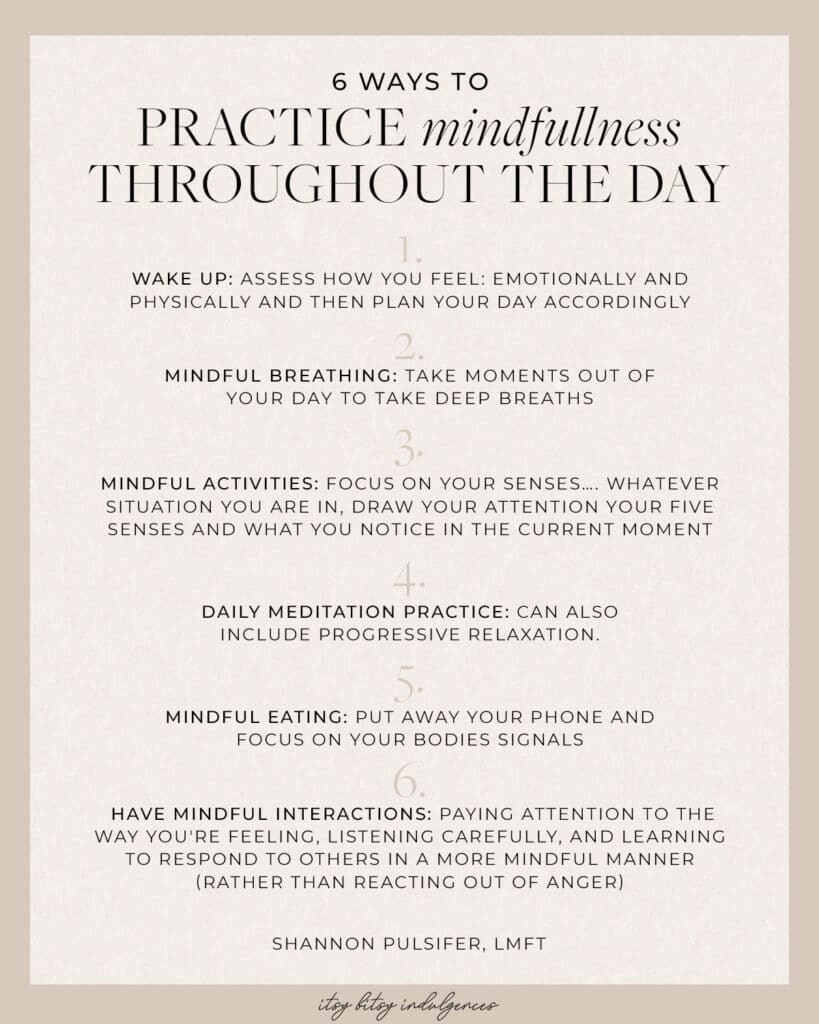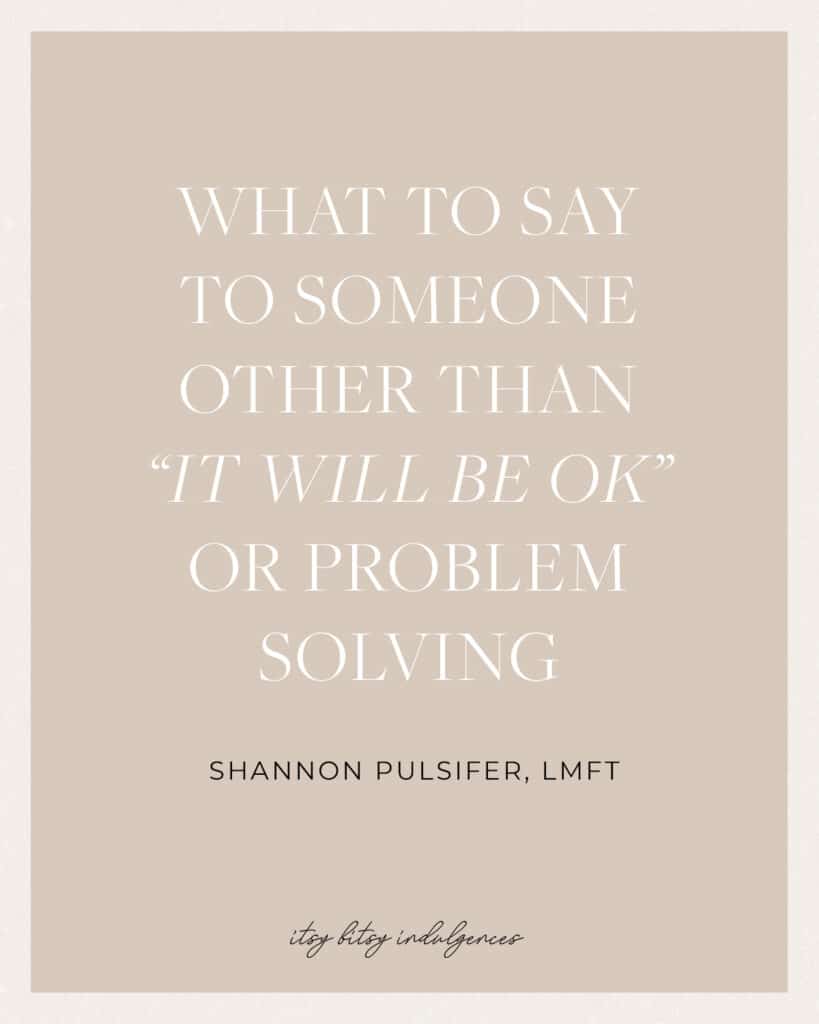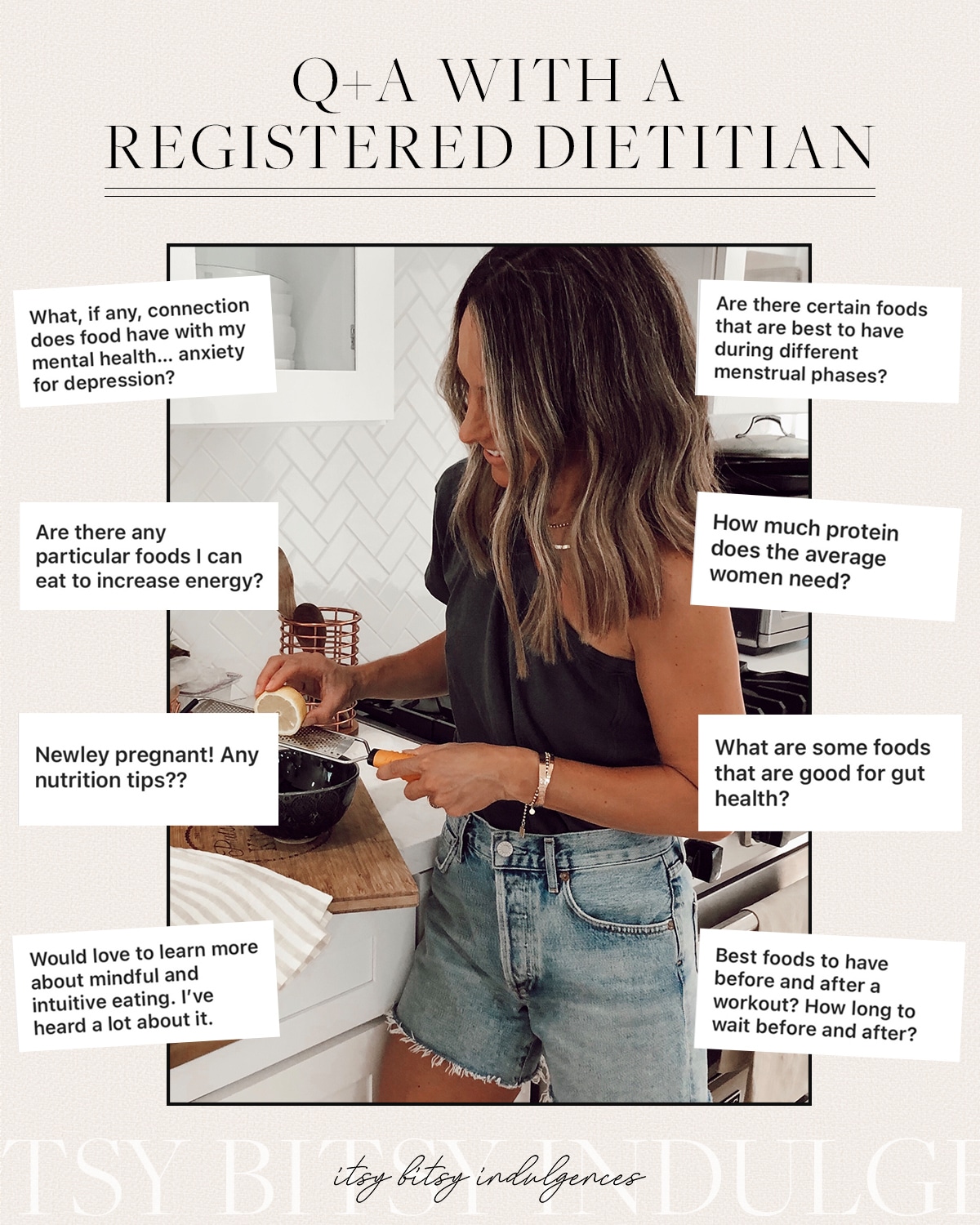
When I was in my 20’s I never gave much thought to how the foods I ate impacted any sort of health issues I might have. I mean, I ate healthy, but I didn’t realize that certain foods were more inflammatory than others… that others could help your body recover better after an intense workout, etc. Then we started to try to have a baby… and then I was diagnosed with hashimotos… and for both situations the doctors recommended a change in diet (an elimination of dairy and gluten, which I know I’ve already talked about a lot on here…). And while everyone’s situation is always different, these changes had a profoundly positive change for me….
When I was working with my clients, I always felt that there was something missing in the work. While our team focused on the individual and family systems that were at play, I always felt that we would have been much more well rounded if we took a more holistic approach… one that focused on the mental health and physical health. And by physical health, I always thought our clients could have benefited from consultations with nutritionists, health coaches, etc…. to having a more well balanced approach to their mental health. In that, I always had a goal of opening a women’s wellness center. One that focused on a woman’s mental health and physical health…. sort of that cliché “mind, body, spirit” connection people always talk about.
And while that goal may or may not come to fruition someday, today I am teaming up with the ladies behind Seed & Season, a sister duo – Ellie is a registered dietitian and Donna is a certified behavioral coach and they specialize in a seasonal and mindful approach to eating with a focus on an abundance mindset (aka: what can you add to your plate to make it more nourishing with vitamins + minerals??) to do a Q+A… I garnered questions from instagram and what we’re sharing today are the most frequently asked questions. I hope it helps in some way and if you have additional questions, I know they would be more than happy to help with them…..
Q: How much protein does the average woman need?
A: For an average, healthy woman daily protein intake should be 0.8 grams per kilogram of weight. Start by converting your weight in lbs to kilograms by dividing by 2.2. Then, multiply by 0.8 to get your daily protein needs in grams.
Q: Are there certain foods that are best to have during different menstrual phases?
A: To support healthy menstrual cycles, it is important to consistently get in adequate protein, fiber, healthy fats and micronutrients like B-12, fiber, zinc and magnesium – ideally from whole food sources (whole grains, organic dairy, seasonal fruits + veggies, and organic proteins). During the luteal phase (right before your period) it is great to add in anti-inflammatory foods like berries, fatty fish, avocados, broccoli, sunflower and sesame seeds. During the menstrual phase, it is important to get in adequate iron (dark leafy greens, sea veggies, lentils, organic animal proteins) as well as zinc (pumpkin, flax seeds).
Q: What are some foods that are good for gut health?
A: Pre- and probiotics are the name of the game! We need prebiotics to feed that gut-friendly bacteria (probiotics). A good balance of both will give you a healthy gut microbiome. Prebiotics can be found in foods like bananas, peas, artichokes, apples and barley. Probiotics are naturally found in yogurt (just be mindful of sugar!), kefir, miso and fermented veggies like sauerkraut and kimchi. We LOVE Farmhouse Culture for all of our fermented veggie needs – just add to any salad or bowl for a tasty dose of probiotics.
Q: Best foods to have before and after a workout? How long to wait before and after?
A: The best combo for pre and post workout is protein + fiber. Protein for muscle repair and fiber for sustained energy! This could look like a piece of whole wheat toast with PB or almond butter, a serving of organic cheese with 1/2 of an apple, hard-boiled egg with some carrot sticks or Greek yogurt with berries. A good time frame is about an hour to 1/2 hour pre and post.
Q: Would love to learn more about mindful and intuitive eating. I’ve head a lot about it.
A: Love this question! Mindful eating is all about feeling your hunger/satiety cues and being in the present moment when you choose certain foods. It is about conscious (allowing all foods into your life) eating behaviors rather than unconscious (bingeing, restricting) We teach this method through mindful eating exercises and encouraging you to be comfortable and in control of your eating decisions. This is not an overnight process, but one that is a constant practice. Once it clicks, you can find so much freedom and peace in your food relationship
Q: Newly pregnant! Any nutrition tips?
A: Congrats!! Get in plenty of B-vitamins (folic acid, vitamin B-12, B6) as well as iron, calcium, and vitamins A, D and C. These are usually covered in any good prenatal, but the easiest way to make sure you’re getting these covered is by eating a TON of fresh, seasonal produce and whole foods. Also, make sure you’re getting in an extra protein-packed snack (about 300 kcals) or two to support healthy weight gain for you and baby!
Q: Are there any particular foods I can eat to increase energy?
A: Absolutely! Big dips in energy could be tied to hormone imbalances which often stem from processed foods or foods that are too high in sugar. A great way to reset and get your hormones in tip top shape for better energy levels is to increase your vitamin/mineral and antioxidant intake. At seed+season, we advocate for seasonal eating as in-season fruits + vegetables will have the greatest concentration of these nutrients. Right now, berries, cherries, zucchini, summer squash, cucumbers, tomatoes, okra and eggplant are just a few of the hormone-balancing wonders nature has to offer us now.
Q: What, if any, connection does food have with my mental health… anxiety/depression??
A: A big + fascinating connection – the gut is responsible for about 90% of your serotonin receptors. It’s no wonder we feel bummed out when we have a stomach ache! To heal your gut, start by eating plenty of probiotic-rich foods OR look into supplementing your diet with a good quality supplement. We love Klaire labs – they have a TON of probiotics for different needs and one that is specifically designed for the Gut-Brain Axis.
Q: I work full time and have 3 children and feel like it’s so hard to cook healthy. Any tips?
A: Totally hear you!! And working moms make up a big chunk of our clientele. The good news is that you most certainly can put your health first. We help build micro habits for you in order to ensure you are fueling yourself consistently and thoughtfully (no scooping up your kids leftover mac and cheese we promise) A great way to do this is through batching, meal prep, and food paring. So for example, grabbing that Baby Bell cheese is a great choice, BUT, it will only sustain you if you add that fiber: make sure you have sliced cucumber sticks or baby carrots to pair.











